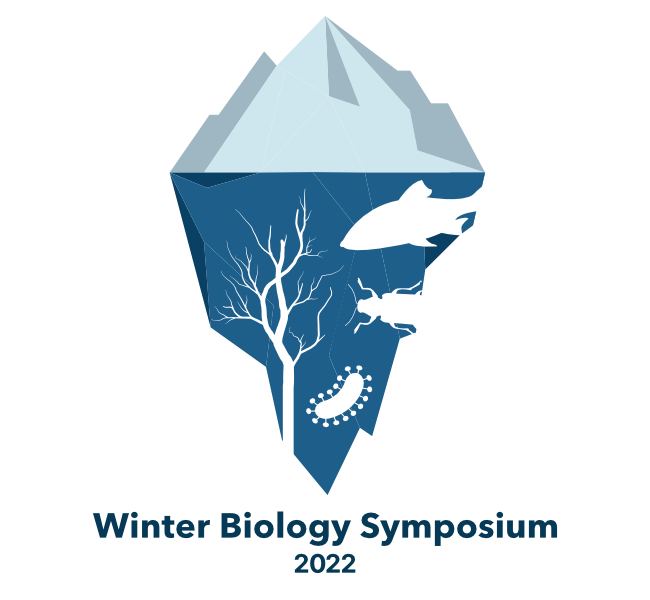2022 Winter Biology Virtual
Symposium
June 6-8 2022
Winter
can
be the defining season for biology in habitats that typically experience
snow and ice. In this virtual symposium, we will
bring together winter researchers from a range of disciplines to
continue fostering an international Winter Biology community.
Our
speakers are derived from the defunct Gordon conference, but we will
ensure opportunity for interaction for the whole community. We welcome
researchers at all stages of their scientific career to this no-cost
symposium.
The meeting was a huge success. Recordings of
the talks will be available on a private link on YouTube until the end of
July 2022. Email Brent Sinclair if
you would like to receive a link to those recordings, and/or if you woudl
like to be added to the email list to stay informed about future winter
biology initiatives.
Note that by attending the symposium, you
agree to the code of conduct.
Monday 6
June, 2 - 5 pm*
|
| 2:00
pm |
Welcome: Co-Chairs: Brent Sinclair; Western University
& Sapna Sharma; York University |
SESSION
1: Predicting Ice Distribution in a Warming World
| 2:05
pm |
Matti Lepparanta (University of Helsinki, Finland). Physics
and climatology of ice season in lakes |
| 2:25 pm |
Gesa Weyhenmeyer (Uppsala University, Sweden). Effects of ice quality changes on lake ecology |
| 2:50 pm |
Aman Basu (York University, Canada). A
glimpse into how ice is changing on Northern Hemisphere
Lakes: the freeze-thaw phenology of one thousand
USA lakes over thirty years |
| 2:55 pm |
Xiao Yang (University
of North Carolina at Chapel Hill, USA). Mapping global
lake ice phenology using satellite remote sensing |
| 3:00 pm |
Discussion
+ Break |
SESSION 2: Life in Winter
3:25
pm
|
Caroline Williams (University of California, Berkeley, USA). Snow
modulates a trade-off between somatic maintenance and
future reproduction in willow leaf beetles |
3:45 pm
|
Christa Mulder (U. of Alaska Fairbanks, USA). Berry plants in winter: what are they doing when
no one is watching? |
4:05 pm
|
Hannah Carey (University of Wisconsin, USA). Symbiosis
between hibernators and their gut microbes promotes
survival during winter’s challenges |
| 4:30 pm |
Jessica Robichaud (Carleton University, Canada). Northern Map Turtle overwintering behaviour: movement
under ice |
| 4:35 pm |
Connor Reeve (Carleton University, Canada). The Winter Behaviour and Physiology of Free-Swimming
Largemouth Bass |
4:40 pm
|
Discussion
|
|
Tuesday 7 June, 7 - 9.30 pm*
|
|
SESSION
3:Winter biology across space and time
| 7:00
pm |
Peter Groffman (Cary Institute of Ecosystem Studies,
USA). Cross-season Interactions and
Nitrogen Oligotrophication in the Northern
Hardwood Forest |
| 7:30 pm |
Katie E. Marshall (University
of British Columbia, Canada). The
evolution
of plasticity in cold tolerance in eastern
spruce budworm |
| 7:50 pm |
Discussion
|
Break
8:20
pm
|
Hugh Henry (Western University, Canada). Soil
freeze-thaw cycles and ecosystem function: the
freezing sensitivity of legumes
|
8:40
pm
|
Yuka Yajima (Muroran Institute of Technology,
Japan). Snowbank myxomycetes (true slime molds): a
nest of cryptic microorganisms under snow cover |
8:45
pm
|
Kenneth Smith (University of Utah, USA).
Snowpack-mediated temperature responses of winter
ecosystem respiration are linked to differences in
plant functional type across snow-covered forests |
| 8:50
pm |
Julie Reynolds (The
Ohio State University, USA). What, if any,
role do microRNAs have in tolerating the cold
in insects? |
| 8:55
pm |
Chunsen Ma (Chinese
Academy of Agricultural Sciences, China). Climate
warming expands overwintering range of diamondback
moth and promotes pesticide resistance |
9:00
pm
|
Discussion
|
|
|
Wednesday 8 June, 9 - 11.45 am*
|
|
SESSION 4: Species and ecosystem
vulnerability to changing winters
9:30
am
|
Lloyd Peck (British Antarctic Survey, UK). Antarctic
marine ectotherms and the cold dark winter
months |
| 10:00 am |
David Swanson (University of South Dakota, USA) Metabolic
Flexibility
and Environmental Heterogeneity: How do
Birds Respond to Variable Winters? |
10:20 am
|
Pamela Templer (Boston University, USA).Combined
effects of climate change in the winter and
growing season on northern hardwood forests |
10:40 am
|
Break |
| 10:55 am |
Heidi Steltzer (Fort Lewis College, USA). Less snow,
earlier snowmelt and a warming climate: how
critical is it that we know how each affects plant
biology, watershed function and water supply? |
| 11:15 am |
Christian Rixen (WSL Institute for Snow and
Avalanche Research, Switzerland). Changing snow and alpine plants |
11:35 am
|
Discussion
|
|
|
Wednesday 8 June 12 noon - 1 pm
|
Business Meeting
(We know, nobody likes a business meeting, but this is an excellent
time to engage as a community and decide: Will we have an in-person
meeting in 2024? Where? Who will organize it? Should we reapply for
a Gordon Conference given our 2020/2022 experiences? This is your
opportunity to have a say in how the international winter biology
community develops.) |
*All dates and times are Eastern Daylight Time. Here's a link to a timezone converter if you don't
have a favorite of your own.
The Winter Biology Virtual Symposium is organized by Sapna
Sharma, Brent
Sinclair, Steven Cooke, and Pamela Templer.
Contact (for this page): Brent Sinclair

